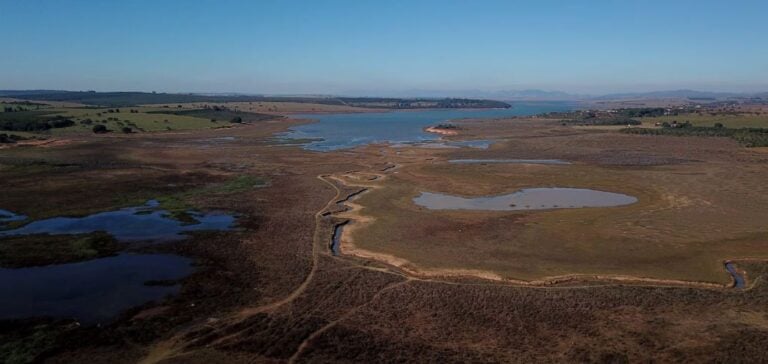Brazil is facing a major energy crisis in its northern region, where the historic drought in the Madeira River is jeopardizing hydroelectric production.
This unprecedented situation is forcing the country to turn to alternative sources, notably electricity imports from Argentina and Uruguay.
The Electricity Sector Supervisory Committee (CMSE) recently recommended a significant reduction in the use of local hydroelectric power stations to preserve the scarce water reserves available.
Since mid-2023, the Madeira River, essential for supplying the Jirau and Santo Antônio power plants, has been experiencing alarming water levels.
The Agência Nacional de Águas (ANA) predicts that these conditions could persist until the end of November, highlighting Brazil’s vulnerability to climatic variations.
The drought is also having an impact on river logistics, slowing grain transport and directly affecting the country’s exports.
Energy Crisis Response Strategies
To cope with this drop in hydroelectric production, the Brazilian government has stepped up its efforts to secure the country’s electricity supply.
Measures taken include importing energy from neighboring countries and promoting off-peak consumption for major industries.
Increased reliance on thermal sources, while necessary, leads to higher production costs, which could be passed on to consumers. Brazil’s dependence on hydroelectricity, which accounts for over 60% of its installed capacity, highlights the need to diversify the energy mix.
Discussions around the more significant integration of non-hydro renewable sources, such as solar and wind power, are becoming increasingly pressing.
At the same time, incentives are being considered to encourage investment in these alternative technologies, which are less subject to the vagaries of the weather.
Social and economic impact
The economic repercussions of this crisis are considerable.
Delays in river transport, caused by low water levels, are compromising the competitiveness of Brazilian agricultural exports on the international market.
In addition, the anticipated rise in electricity tariffs, linked to higher production and import costs, could exacerbate internal economic tensions.
Indigenous and rural communities, directly dependent on river resources, are also suffering severe consequences.
Lack of drinking water and disruption to traditional farming activities are worsening living conditions in these already fragile areas.
Local and federal authorities are called upon to intervene rapidly to mitigate these effects and provide support to the most vulnerable populations.
The evolution of this situation will be decisive for Brazil’s energy future.
Resilience in the face of climate change, and optimization of available resources, are priorities for ensuring the country’s stability in the years ahead.





















